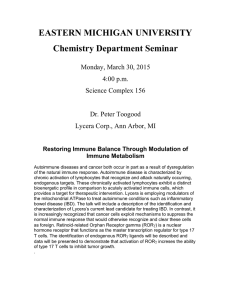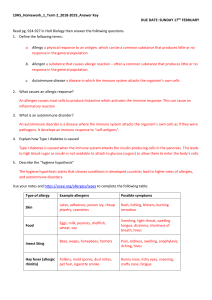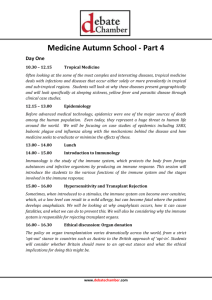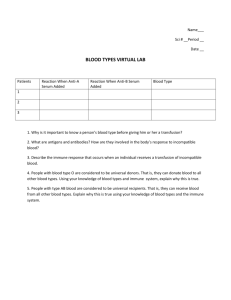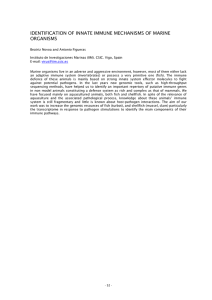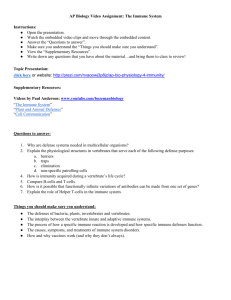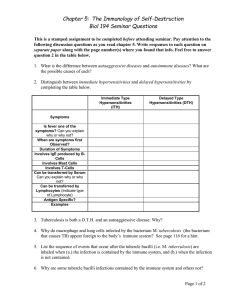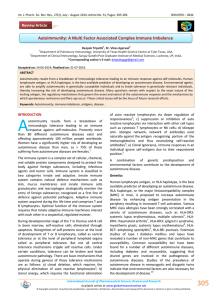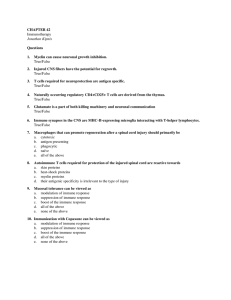UNIVERSITY OF MALTA
advertisement
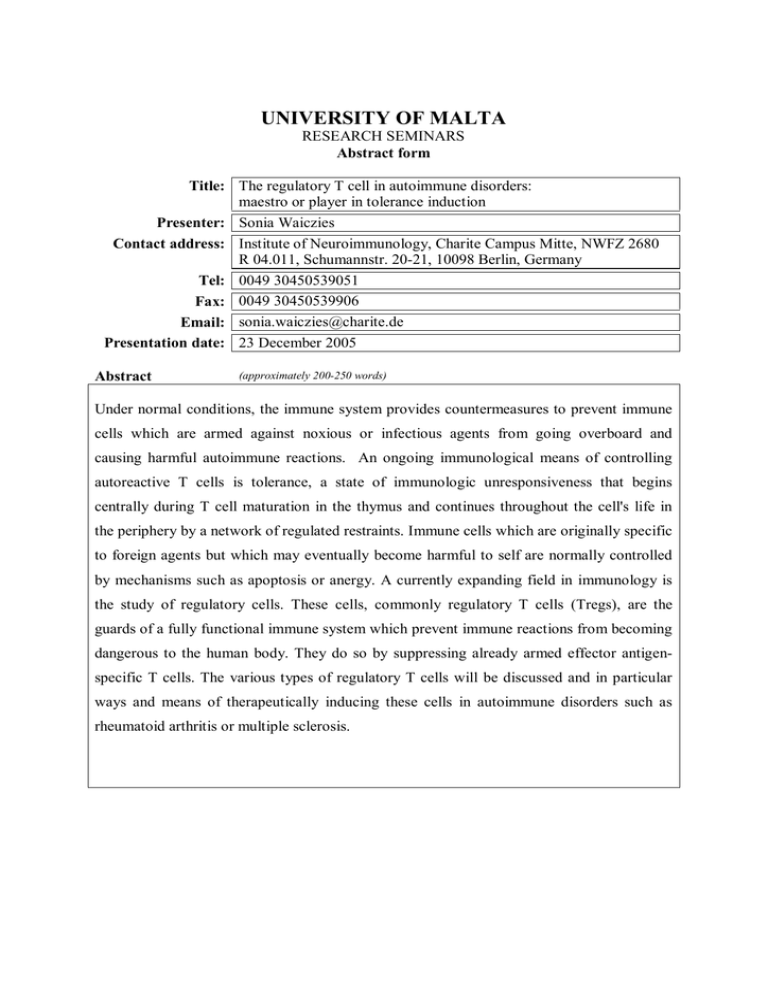
UNIVERSITY OF MALTA RESEARCH SEMINARS Abstract form Title: The regulatory T cell in autoimmune disorders: maestro or player in tolerance induction Presenter: Sonia Waiczies Contact address: Institute of Neuroimmunology, Charite Campus Mitte, NWFZ 2680 R 04.011, Schumannstr. 20-21, 10098 Berlin, Germany Tel: 0049 30450539051 Fax: 0049 30450539906 Email: sonia.waiczies@charite.de Presentation date: 23 December 2005 Abstract (approximately 200-250 words) Under normal conditions, the immune system provides countermeasures to prevent immune cells which are armed against noxious or infectious agents from going overboard and causing harmful autoimmune reactions. An ongoing immunological means of controlling autoreactive T cells is tolerance, a state of immunologic unresponsiveness that begins centrally during T cell maturation in the thymus and continues throughout the cell's life in the periphery by a network of regulated restraints. Immune cells which are originally specific to foreign agents but which may eventually become harmful to self are normally controlled by mechanisms such as apoptosis or anergy. A currently expanding field in immunology is the study of regulatory cells. These cells, commonly regulatory T cells (Tregs), are the guards of a fully functional immune system which prevent immune reactions from becoming dangerous to the human body. They do so by suppressing already armed effector antigenspecific T cells. The various types of regulatory T cells will be discussed and in particular ways and means of therapeutically inducing these cells in autoimmune disorders such as rheumatoid arthritis or multiple sclerosis.
